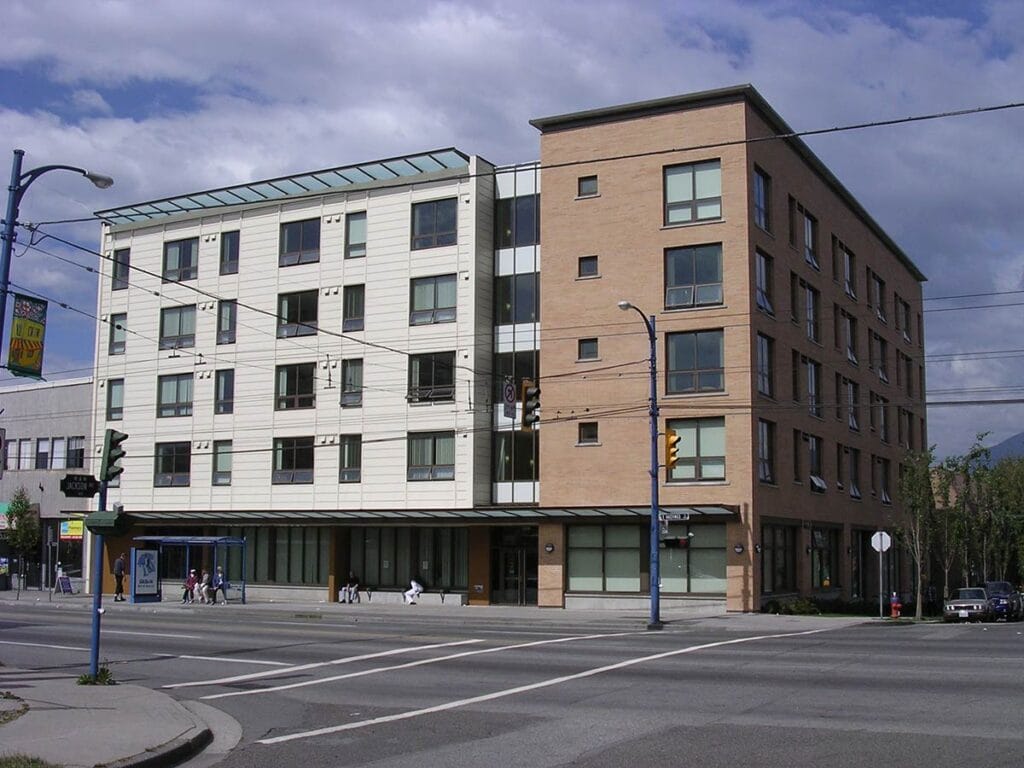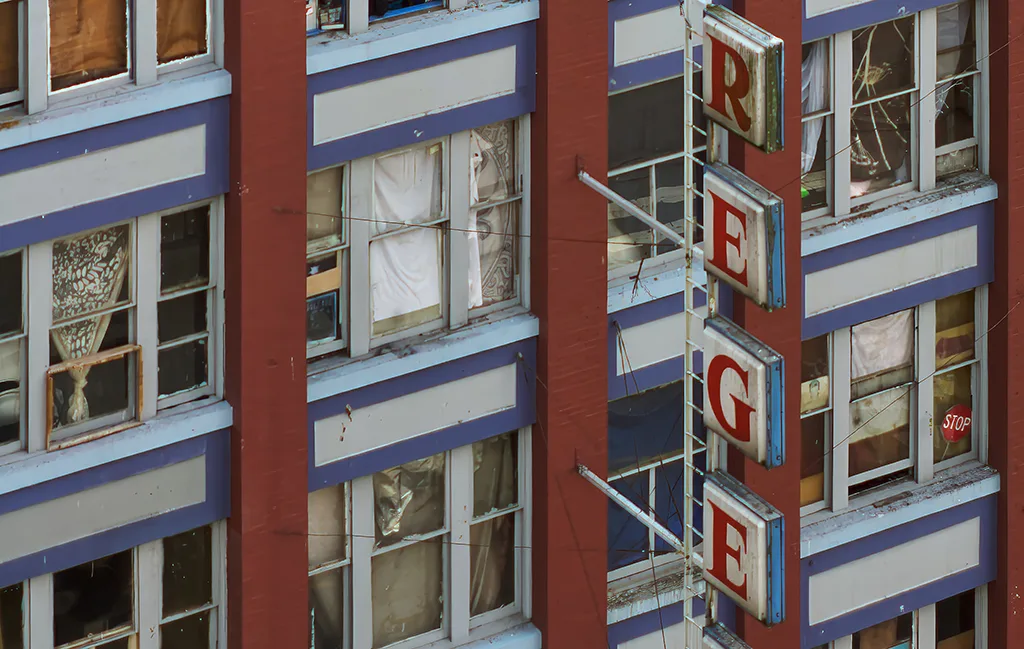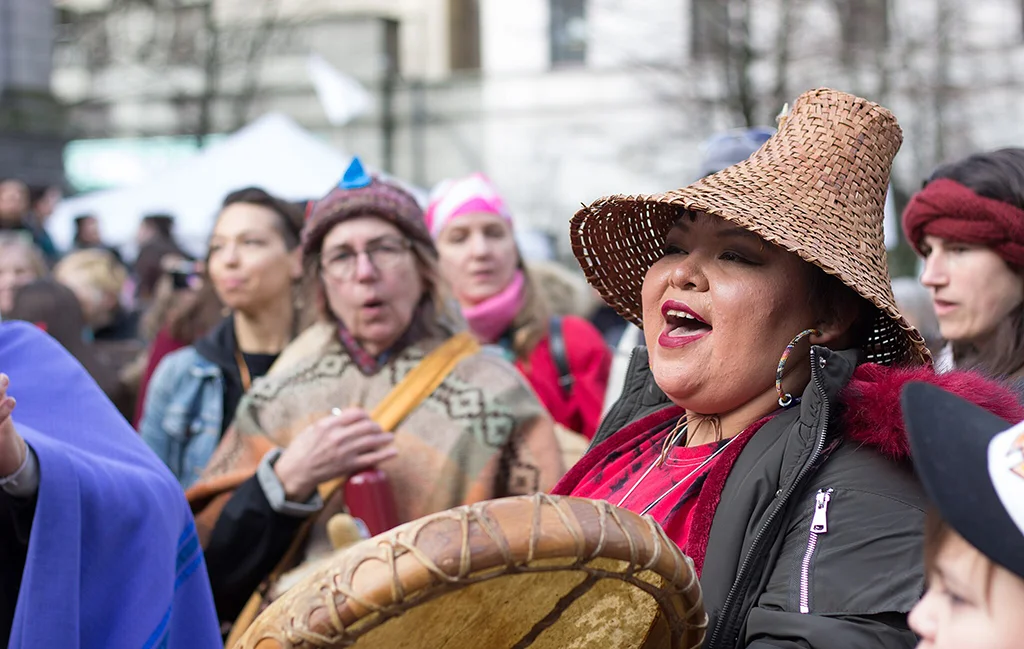The Downtown Eastside (DTES) is often portrayed as a place of despair, with stories of poverty, addiction, and homelessness dominating the narrative. But what happens when we flip the script? What if we highlight the resilience and recovery that bloom in this gritty yet vibrant community? One resident, whose life took a turn for the better at Smith-Yuen Apartments on East Hastings Street, offers a different story—a story of hope, dignity, and survival in the face of immense challenges.
A Personal Story of Redemption
When Amy Romer first arrived at Smith-Yuen Apartments in Vancouver’s Downtown Eastside (DTES) back in 2013, she had no idea how much this place would change her life. Struggling with bipolar affective disorder and the instability of homelessness, Amy was referred by Strathcona Mental Health, and all it took to get her foot in the door was showing up for an interview. What awaited her inside was far more than just a roof over her head—it was the foundation of recovery, dignity, and a renewed sense of purpose.
Smith-Yuen, nestled in the heart of one of Canada’s most stigmatized neighbourhoods, is a community that offers hope to those who need it most. In her own words, Amy describes it as “a haven,” a place where she could finally start to rebuild her life after years of turbulence. But her story also sheds light on the often-overlooked resilience of the DTES and the powerful role that quality housing and support services can play in someone’s recovery.
Finding Sanctuary at Smith-Yuen
Amy’s move to Smith-Yuen felt like a turning point in her life. The building, created through a partnership between federal and provincial governments, Sanford Housing Society, and Vancouver Coastal Health (VCH), wasn’t just another social housing project. It was a thoughtfully designed, energy-efficient space that provided Amy with more than just basic shelter. Managed by PHS Community Services Society, with additional support from Strathcona Mental Health, Smith-Yuen offered a level of care that went far beyond the norm.
“I’ve lived here since 2013,” Amy recalls. “It’s hard to believe, but all I needed to do was show up for the interview. This building has been my haven as I’ve recovered from bipolar affective disorder and homelessness.” This simplicity, this open door, was exactly what Amy needed at that point in her life. And for over a decade, Smith-Yuen has given her the stability she had been searching for.
In a city where affordable housing is scarce and the mental health crisis is growing, Amy’s experience is a powerful reminder of how crucial supported housing can be. At Smith-Yuen, residents don’t just receive a room—they receive care. With services like cleaning, laundry, and personal assistance provided by VCH, the residents here are treated with dignity, something that Amy cherishes deeply.
Facing Climate Change Together
Smith-Yuen is more than just a shelter from the storms of life—it’s also a refuge from the literal storms of climate change. For Amy, and for many of her neighbours, climate change isn’t just a distant worry—it’s a very real and pressing issue that they confront every year.
During Vancouver’s deadly 2022 heat dome, Amy experienced firsthand how well-prepared Smith-Yuen was for such crises. “My room became very hot, maxing out at 32 degrees Celsius,” she recalls. But thanks to the support of PHS, Amy was equipped with a stand-up oscillating fan, towels, and instructions to cool off in the building’s designated cooling centre downstairs if needed.
Forward-thinking design and management have made Smith-Yuen one of the few buildings in the DTES that are equipped to handle climate emergencies. From its energy-efficient heat pumps and ductless splits to its filtered air system that protects against wildfire smoke, Smith-Yuen stands out as a model for future housing projects.
“There’s filtered air pumped through the hallways into our units, so we can keep our windows closed during wildfire season,” Amy explains. “It’s a defense for residents like us, who might otherwise suffer more than others during these events.”
In Amy’s experience, these proactive measures are lifesaving. As someone with mental illness, emergencies can feel overwhelming. Yet, at Smith-Yuen, the staff are always one step ahead—regularly checking on residents, especially during extreme weather. Amy reflects on how different things are now compared to when she was homeless between 2010 and 2012. “I wouldn’t take the dangers seriously back then,” she admits. “Today, I’m horrified by my casual attitude. But now, I’m encouraged by the support I have and the knowledge that someone will always check on me.”
Building Community and Healing
One of the most profound impacts that Smith-Yuen has had on Amy’s life is the sense of community it provides. Over her 11 years at the apartment, Amy has built strong relationships with PHS staff and Vancouver Coastal Health workers—people who she credits with helping her through some of her darkest times.
“Even though I don’t need most of the home support services anymore, they’re always looking out for me,” Amy shares. “They help me with my medications, provide an evening meal, and are present at the right times.” For someone who once felt isolated and alone, this human connection has been life-changing. The care she receives from the staff is not just professional—it’s personal. These relationships have given Amy the stability and trust she needed to focus on healing.
For Amy, the quality of life at Smith-Yuen is a testament to the building’s thoughtful design. Spacious rooms with large, double-paned windows, walk-in showers, and an excellent fire suppression system give her peace of mind, while the communal spaces foster a sense of belonging. The apartments, built by Sanford Housing Society in 2005, were ahead of their time, and today they continue to set the standard for what social housing should aspire to be.
Housing First, Dignity Always
But while Smith-Yuen has been a lifesaver for Amy, she knows that there are still countless others in Vancouver’s DTES who remain without stable housing. The “Housing First” model—which prioritizes giving people housing before addressing other needs—has clearly worked for Amy. She believes it could work for many more if only there were more places like Smith-Yuen.
“More needs to be done,” Amy asserts. “But I’m glad that so many marginalized people in this community will have a chance to say, ‘They thought of everything.’”
Smith-Yuen’s success isn’t just about the building itself. It’s about the care and thought that go into creating a community where everyone—no matter their struggles—can thrive. Amy’s story is a powerful reminder that when we invest in quality housing and comprehensive support, we can change lives.
Looking to the Future
Amy’s experience at Smith-Yuen Apartments speaks to the broader challenges and opportunities that face cities like Vancouver as they grapple with the dual crises of homelessness and climate change. The DTES may be known for its struggles, but it’s also a place of resilience, where people like Amy can rebuild their lives.
“Housing first,” Amy emphasizes. “It’s worked for me, and it can work for others.” Her story is both a call to action and a beacon of hope—proof that with the right support, recovery is possible.
In a world where safe, affordable housing is increasingly out of reach, Amy’s story challenges us to rethink what is possible when we “think of everything” and provide more than just a roof over someone’s head – we provide a home — a place of healing, safety, and community.
DOWNTOWNEASTSIDE.ORG is a collective author account used by several DTES contributors to discuss key issues and events in the neighbourhood. Articles under this authorship reflect diverse perspectives from those directly connected to the community. If you’d like to reach a specific contributor, please contact us via email.







Leave a Comment